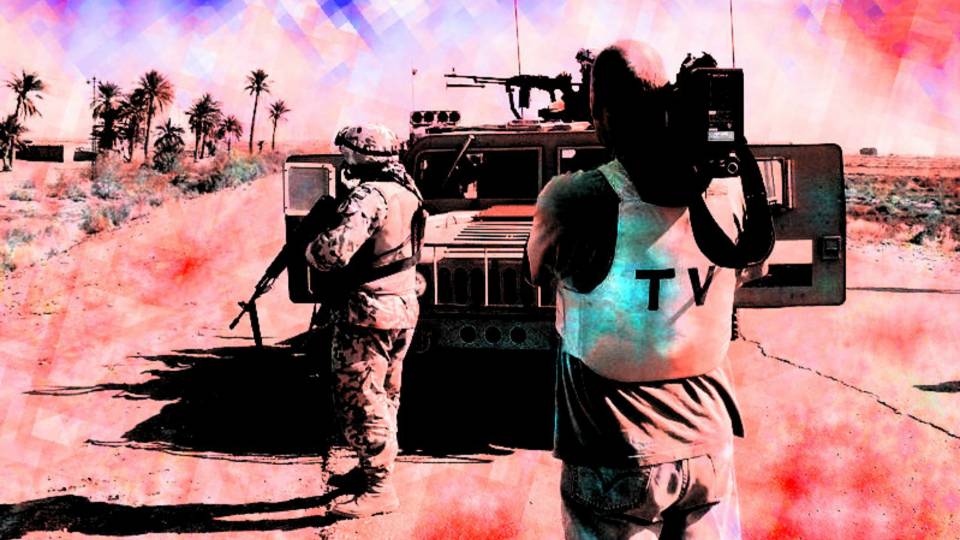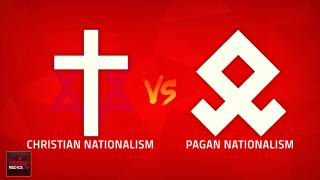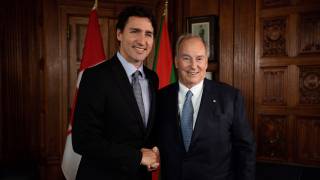The Priest-Warrior Conflict
Every day, media consumers can look at news reports and remark how anti-military the media is after the initial salesmanship involved in a run-up to a war. The media seems to take the side of America’s opponents, ask readers to understand opponents, highlight any slight wrongdoing by the military, set the parameters for fair play, and often call for the end of hostilities for diplomatic measures. The military returns the favor, with some members calling for outright execution for treason of the academia/legal/media complex, also known as the Cathedral. Casual readers witness the Red-Blue Empire fight without realizing it.
This is really the fight between the priests (Blue) and warriors (Red) of an empire arguing over who and whose ideas and methods should rule. This argument exists because there is a lack of a proper sovereign. To borrow from the Ottoman circle of equity that described how the pre-modernization Ottoman empire ran, the sovereign’s authority was due to the military, but justice and harmonious relations that allowed for security and wealth and were based in religion were supported by the sovereign. A system had roles and responsibilities with a hierarchy of authority. In our modern system, the Blue Empire (priests) fight the Red Empire (warriors) domestically and in foreign lands via proxy wars. Just take a look at rival CIA and Pentagon-funded militias in Syria.
The American experience is not new. There is the addition of television: the raw visuals can play with emotions for the advantage of one side or the other (imagine Vietnam without television or even photography). The scale is not even that new. Before the current regime, there were elements in place that gave the priest class an edge. Mass media was the edge for the new communist priests rising in power, as Edward Bernays pointed out in his book Propaganda. This makes sense; the morning ritual of reading the daily replaced prayers or mass attendance, and the newsreel weeklies in the theater replaced the Sunday sermon.
Bernays wrote this well after William Randolph Hearst provided the American drive for its first imperial war, but a more fascinating example of the priest-warrior battle and media’s role is found in the removal of Lord Cromer from Egypt in 1907. The British occupation of Egypt was a remarkable stretch in colonial administration. Cromer’s administration is strongly framed as rule by warriors. This does not mean the harsh, negative connotations that the media class has cultivated for propaganda purposes. Cromer’s efforts made the failed irrigation works of prior Khedive governments work. The cotton fields bloomed and Egypt quickly paid off debts and blossomed.
One of the greatest achievements for any modern priestly government is the abolition of slavery. This is so strongly loved by 21st century priest types that tears flow when they watch a Hollywood movie set in the days of American slavery. Cromer ended the Egyptian version of intermittent slavery, the corvee. Lord Cromer is nowhere to be found on the Wikipedia page, but his efforts allowed for it to end. The new priests control our history books, so an old consul of the warrior class will never get his due.
First, his secure management of Egyptian finances allowed the Egyptians to pay off their debts to European banks. In addition, Egypt no longer needed to require more taxes to convert the wretched corvee institution to a paid labor force. Wikipedia tip-toes around Cromer and British work with the irrigation system, instead noting prior Khedives had invested in irrigation. The system lay defunct, incomplete, and a mess until Cromer saw the irrigation system and use of the Nile to its fullest extent as a means to save Egypt. The Anglo-Saxon engineering veterans of India were put to work and performed systems work that the Egyptians could not.
Second, Lord Cromer worked diplomatic and financial channels to manipulate the European governments to convert debt and agree to new terms, in order for him to find the cash to no longer need the corvee. Cromer’s work allowed European banks to feel secure to new terms, which freed up more money. There was no protest movement, no marches for freedom, and no university students allying with the downtrodden. No feel-good activism to feed the holy. This was an imperial governor explaining to the high powers how it could be done.
Despite this act that normally causes leftists to swoon, Cromer’s rule still entailed soldiers providing security and order for merchants to prosper and law and order to hold. The priests would have to wait more than a decade before they could get their chance. A Liberal administration took control in London in 1906 and pushed for Cromer to loosen his grip and move more towards native administration and progress of a constitutional sort. Cromer’s handling of Egypt and the relations with the Ottomans was superb, so there were few chances to change the situation in Egypt.
The opportunity for change came about not from Cromer’s mistakes, but from the mood back home in England. In a little village called Denshawai in 1906, an incident and disproportionate media response worthy of 2016 America took place. British officers went to hunt pigeons, which upset some villagers. In the fracas, a shotgun went off and wounded a female villager. This caused the villagers to attack the officers. A British officer managed to escape the villagers, but died while on foot. Per rules signed just seven years earlier at the Sudan Convention, a tribunal was held, a Copt judge — who would later be Prime Minister — handed down sentences with four set for execution, several to prison and dozens to the lash. Many others were acquitted.
There was not much of a problem in Egypt, but the problem was brewing back in England. The Manchester Guardian decided to make this an issue, and one that it felt deserved to be reviewed in parliament. Geroge Bernard Shaw painted grotesque images to generate the feels. This was an outrage! There was an unofficial Egyptian Committee formed, which had a goal of reforming the current administration and government of Egypt. Egyptian nationalists visited England to impress the Brits that they could be good administrators of their nation. Member of the priest class, poet, writer, and anti-imperialist Wilfrid Blunt wrote that this was the chance for Egyptian nationalism and that this was also the chance to get Cromer.
Political pressure for change suddenly had a rallying cry. Lord Cromer saw the writing on the wall and resigned from his position in 1907. Reform would be the theme for the rest of the British experience in Egypt. Little counsel was taken from Lord Cromer’s warnings about the ineffectual administrative pool of talent or the problems inherent in Egypt. The priests in the British system could advise the natives. The priest class could control the colonial administration for the rest of its formal existence and informal influence after dissolution.
The famous use of media and propaganda to turn the American public against the Vietnam War efforts was not a new game, just a new delivery system. The public outcry that forced Cromer and the warrior class out of Egypt was an earlier example of the media playing a major role in the handling of an empire. This continues to this day as Red vs. Blue empire proxies fight one another on the battlefield, or in the media.
That incident would have far-reaching effects. A young lawyer from India serving the empire in South Africa during the Boer War era also witnessed what was going on elsewhere in the Empire. Gandhi would later use the same media megaphone to help his cause and end the British Raj. A king or secure sovereign could prevent these small incidents from becoming international outrages simply by formalizing authority, responsibility and accountability. A duty, obligation and role for each priest and every warrior that would reinforce the whole.






















